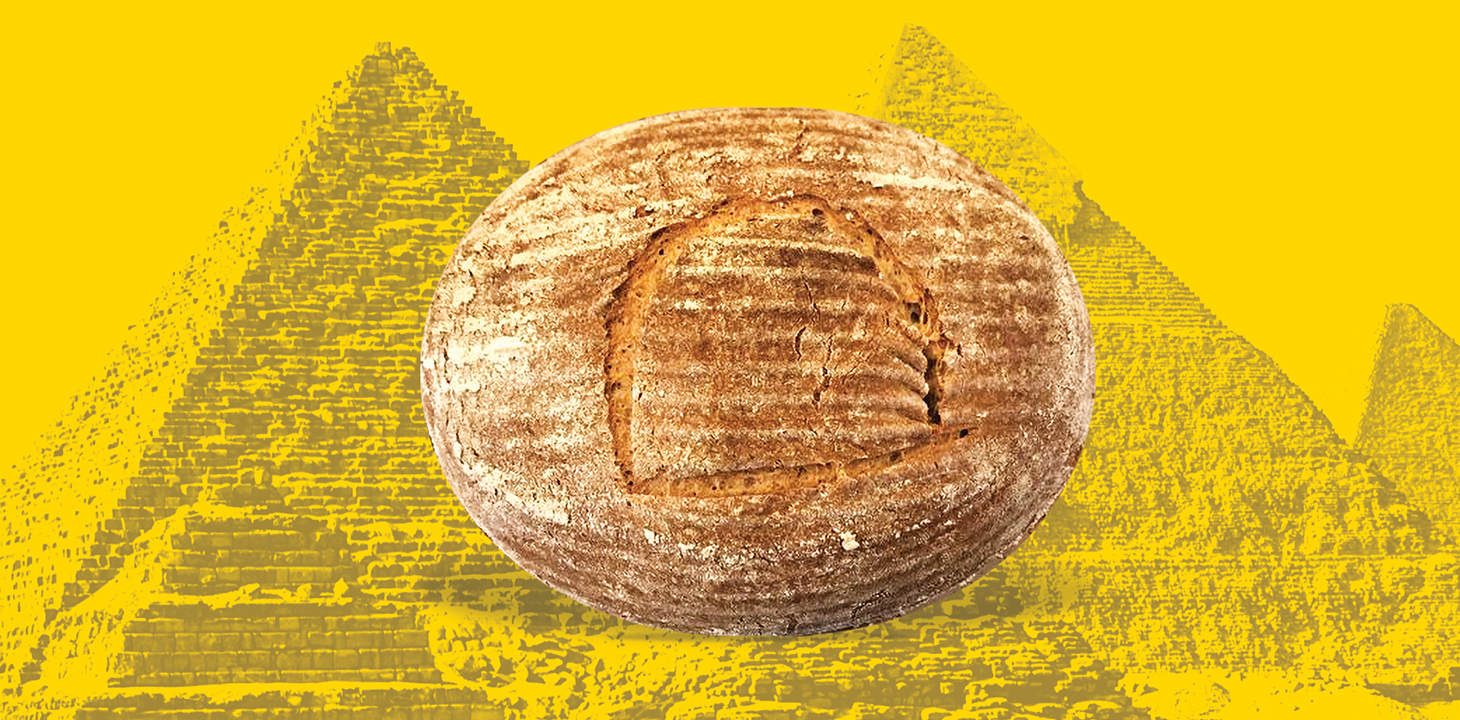Iowa Biology Student Bakes Ancient Egyptian Bread Just Like Mummy Used to Make
 PHOTO: SEAMUS BLACKLEY
PHOTO: SEAMUS BLACKLEY
Xbox creator Seamus Blackley wanted to eat like an Egyptian.
Through Twitter, the self-described "amateur gastroegyptologist" connected with Richard Bowman (14BS, 17MS), a University of Iowa doctoral candidate in biology, who helped him awaken dormant yeast spores found in ancient Egyptian pottery from their 4,500-year slumber. Bowman and Blackley then studied the ancient yeast and used it to bake sourdough bread.
The science experiment—which may sound like a deleted scene from The Mummy—drew international headlines this past August when Blackley's bread-baking Twitter thread went viral. The duo—along with Serena Love, an archaeologist and Egyptologist at the University of Queensland in Australia—are now working to perfect their ancient Egyptian bread recipe and publish their findings in a scientific journal.
In May 2019, Israeli researchers published a journal article about brewing beer using yeast from ancient Egyptian artifacts discovered at several archaeological sites. "That got Seamus thinking, 'I wonder if we can do a similar thing, but without destroying the artifacts,'" says Bowman, who studies meiosis in UI associate biology professor Sarit Smolikove's lab and took on the bread-making project outside of school. "Seamus contacted me to see if I could come up with a way to non-destructively extract yeast from the clay matrix of the pots."
To ensure the authenticity of their yeast samples, Love secured access to ancient Egyptian beer- and bread-making vessels and bread loaves stored at the Peabody Museum of Archaeology and Ethnology at Harvard University, and the Museum of Fine Arts in Boston. Blackley injected a nutrient solution into the artifacts to feed the once-dormant yeast and vacuumed out the resulting yeast-containing liquid. "It's been shown time and time again that yeast can basically arrest biological function when they run out of food, although how they do it ... I'm not sure that's completely understood by anybody," says Bowman about the yeast, which is believed to be the oldest ever to come out of dormancy.
The team plans to collect samples from a variety of museums and time periods to help them identify which yeast strains are contaminated with modern spores and which are authentic to ancient Egypt. Genomic sequencing will reveal how yeast has changed throughout Egypt's Old, Middle, and New Kingdom periods and into the modern day.
While Blackley sent most of the samples to Bowman for research, he attracted the attention of science enthusiasts worldwide by using some of the ancient yeast to bake bread using water, unfiltered olive oil, and hand-milled barley and einkorn. "The crumb is light and airy, especially for a 100% ancient grain loaf. The aroma and flavor are incredible," Blackley wrote on Twitter. "I'm emotional. It's really different, and you can easily tell even if you're not a bread nerd. This is incredibly exciting, and I'm so amazed that it worked."
